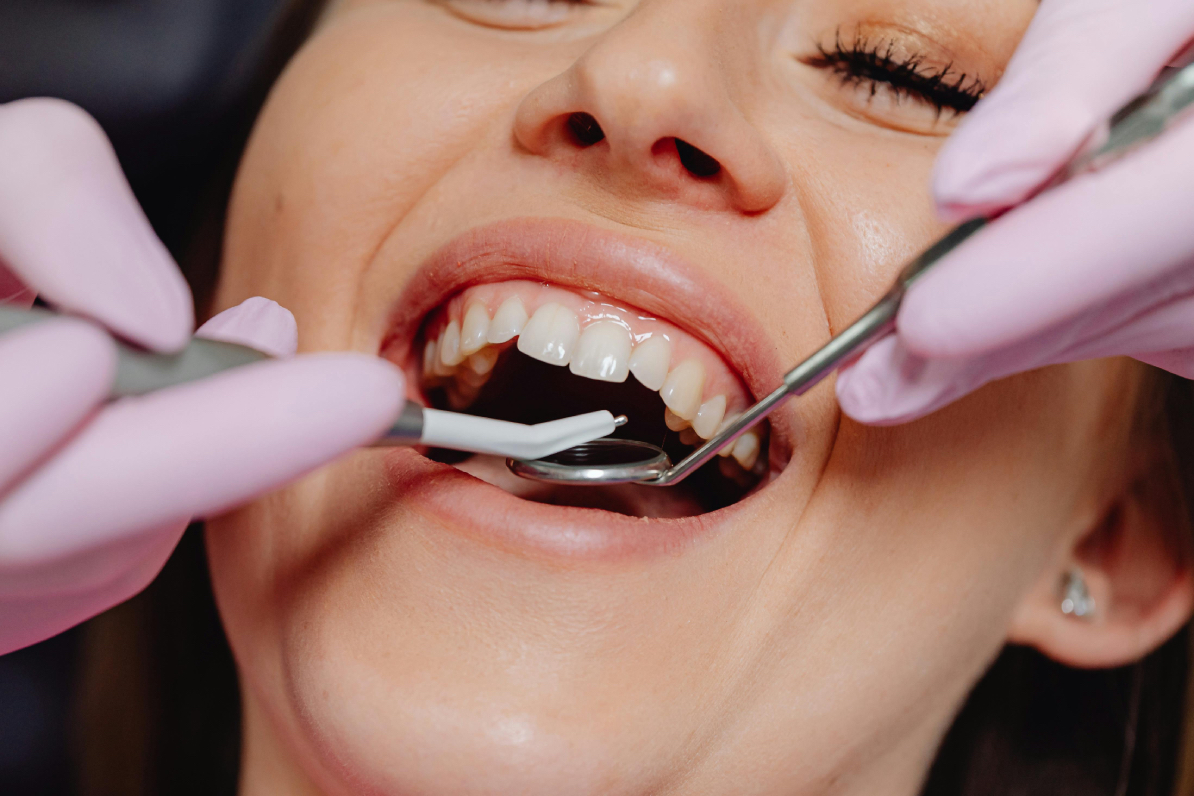Gum recession is a common dental condition that affects many people around the world. It occurs when the gum tissue surrounding the teeth pulls back, exposing more of the tooth or its root. While gum recession is a prevalent issue, there are several myths and misconceptions surrounding it. Let’s delve into some of the most common myths about gum recession and separate fact from fiction. By the end, you’ll have a clearer understanding of this condition and how to maintain healthy gums.
Common Myths About Gum Recession
Myth #1: Gum recession only affects older adults
One common myth about gum recession is that it only affects older adults. While it’s true that gum recession becomes more prevalent with age, it can affect individuals of all ages, including children and young adults. Gum recession can be caused by a variety of factors, not just age. Poor oral hygiene, aggressive brushing, hormonal changes, and genetic predisposition are just a few examples of factors that can contribute to gum recession at any age. Know that this is a serious condition and it can even open up the doors to conditions like periodontal splinting.
Myth #2: Brushing harder will prevent gum recession
Another myth surrounding gum recession is that brushing harder will prevent it. Some people believe that applying more pressure while brushing will lead to better plaque removal and healthier gums. However, this is not the case. In fact, brushing too hard can actually contribute to gum recession by causing the gum tissue to wear away. It’s recommended to use a soft-bristled toothbrush and gentle, circular motions to clean the teeth and gums effectively without causing damage.
Myth #3: Gum recession is not a serious problem
There’s a misconception that gum recession is not a serious dental issue. Some people may believe that receding gums are simply a cosmetic concern and not something to be worried about. However, gum recession is more than just a cosmetic issue. It can lead to tooth sensitivity, decay, and even tooth loss if left untreated. Additionally, gum recession is often a sign of underlying oral health problems, such as periodontal disease. Ignoring gum recession can lead to further complications down the line, making it essential to address the issue promptly.
The Facts About Gum Recession
Fact #1: Gum recession can affect individuals of all ages
Contrary to the myth that gum recession only affects older adults, this condition can occur in people of all age groups. While the prevalence of gum recession increases with age, various factors can contribute to its development at any stage of life. Poor oral hygiene, aggressive brushing, genetic predisposition, hormonal changes, and certain lifestyle factors can all play a role in the onset of gum recession, emphasizing the importance of maintaining good oral hygiene habits from an early age.

Fact #2: Proper brushing technique is essential for preventing gum recession
One of the most effective ways to prevent gum recession is by practising proper brushing techniques. Contrary to the myth that brushing harder is better, using a soft-bristled toothbrush and gentle, circular motions is recommended by dental professionals. This helps to remove plaque and food particles effectively without causing damage to the delicate gum tissue. Additionally, using fluoride toothpaste and incorporating flossing or interdental brushes into your daily oral care routine can further promote gum health and prevent gum recession.
Fact #3: Gum recession can be treated and managed
Contrary to the myth that gum recession cannot be treated, there are several treatment options available to help manage the condition and prevent it from worsening. Non-surgical treatments such as scaling and root planing, which involve deep cleaning below the gumline to remove plaque and tartar, can help slow or stop the progression of gum recession. Surgical procedures such as gum grafting may be recommended in more severe cases to restore lost gum tissue and cover exposed tooth roots. The key is to seek professional dental care as soon as gum recession is detected to explore the most suitable treatment options for your specific situation.
When Should You See a Dentist About Gum Recession?
Most people don’t realise how serious gum recessions can be. They believe that it’s an aesthetic issue and one that simply means you’re going to show more gums when you smile. While this is a side effect, this isn’t the only problem that comes with gum recession. You need to remember that if you let it progress, it can lead to losing your teeth. This is often your worst nightmare and something you want to avoid at all costs. So, it means that you have to take gum recession seriously from the beginning. Here’s what you need to know about seeing a dentist.
See a Professional Immediately
Know that gum recession doesn’t happen overnight. Instead, it’s progressive, which means that you’ll suddenly see it when you look in the mirror. By the time you recognise it, it may have become serious. So, instead of delaying, you should make sure that you book an appointment with your dentist. You can discuss that you think you have gum recession, and they’ll assess you for treatment.
Therefore, don’t make the mistake of believing the appointment can wait regarding gum recession. Yes, it takes time to take hold. But, most people only notice they have it once it becomes an issue. So, if you delay further, you will increase your risk of losing your teeth.
Signs of Gum Recession
Recognising the signs of gum recession is imperative. This way, you can seek dental help as soon as possible. In particular, pay attention to if the gum line is changing. Do you notice that you can see more of your teeth than you could before? You might also notice that these teeth are more sensitive than normal, with you suffering discomfort when you consume anything hot or cold. Even sweet and acidic foods have the ability to irritate the gums.
Some people aren’t sure whether they have gum recession or not. However, this doesn’t mean that you shouldn’t book a dentist appointment. Remember, they’re the experts, and they will help you. All you have to do is book an appointment with them.
Conclusion
In conclusion, it’s essential to separate fact from fiction when it comes to gum recession. While there are many myths and misconceptions surrounding this common dental condition, understanding the facts is crucial for maintaining optimal oral health. Gum recession can affect individuals of all ages and is often a sign of underlying oral health issues that require prompt attention.
You might also enjoy reading about Bruxism – Teeth Grinding and Clenching.




